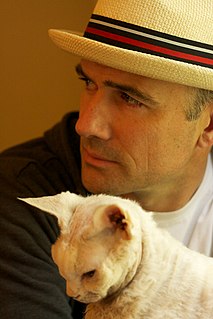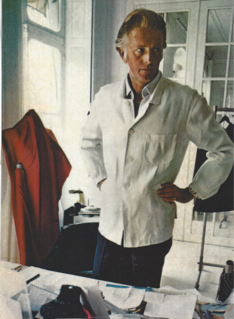A Quote by Iyanla Vanzant
One way to eliminate self negating thoughts and behavior is by gaining more understanding through realizing that you cannot force others to see that what you feel is real.
Related Quotes
?When you meet anyone, treat the event as a holy encounter. It's through others that we either find or love our self. For you see, nothing is accomplished without others. When you eliminate the concept of separation from your thoughts and your behavior, you begin to feel your connection to everything and everyone.
The real "haves" are they who can acquire freedom, self-confidence, and even riches without depriving others of them. They acquire all of these by developing and applying their potentialities. On the other hand, the real "have nots" are they who cannot have aught except by depriving others of it. They can feel free only by diminishing the freedom of others, self-confident by spreading fear and dependence among others, and rich by making others poor.
It's important to realize that inquiry is about noticing, not about dropping the thought... Inquiry is not about getting rid of thoughts; it's about realizing what's true for you, through awareness and unconditional self-love. Once you see the truth, the thought lets go of you, not the other way around.
We have the need to be accepted and to be loved by others, but we cannot accept and love ourselves. The more self-love we have, the less we will experience self-abuse. Self-abuse comes from self-rejection, and self-rejection comes from having an image of what it means to be perfect and never measuring up to that ideal. Our image of perfection is the reason we reject ourselves the way we are, and why we don't accept others the way they are.
Sentient beings, self and others, enemies and dear ones-all are made by thoughts. It is like seeing a rope and mistaking it for a snake. When we think that the rope is a snake, we are scared, but once we see that we are looking at a rope, our fear dissipates. We have been deluded by our thoughts. Likewise, mentally fabricating self and others, we generate attachment and aversion.
I'm realizing that the people who criticize what I'm doing, their intentions and comments are not actually real.There's nothing happening in the real world outside of whatever they're writing on the internet. Whereas for the people who feel inspired by what I'm doing, there's something so concrete and powerful in what's happening when they feel empowered. There's actually some kind of growth or self-acceptance, some kind of self-love that's actually being triggered, hopefully. And that's real.
Adolescents, for all their self-involvement, are emerging from the self-centeredness of childhood. Their perception of other people has more depth. They are better equipped at appreciating others' reasons for action, or the basis of others' emotions. But this maturity functions in a piecemeal fashion. They show more understanding of their friends, but not of their teachers.
What I mean by it, and roughly what most biologists who talk about culture mean by it, is either behavior itself, or information that leads to behavior. Information that is picked up through social learning - so, from being with, watching, being taught by others. It's a way that individuals behave or get information about how they will behave that comes directly from the behavior of others.



































